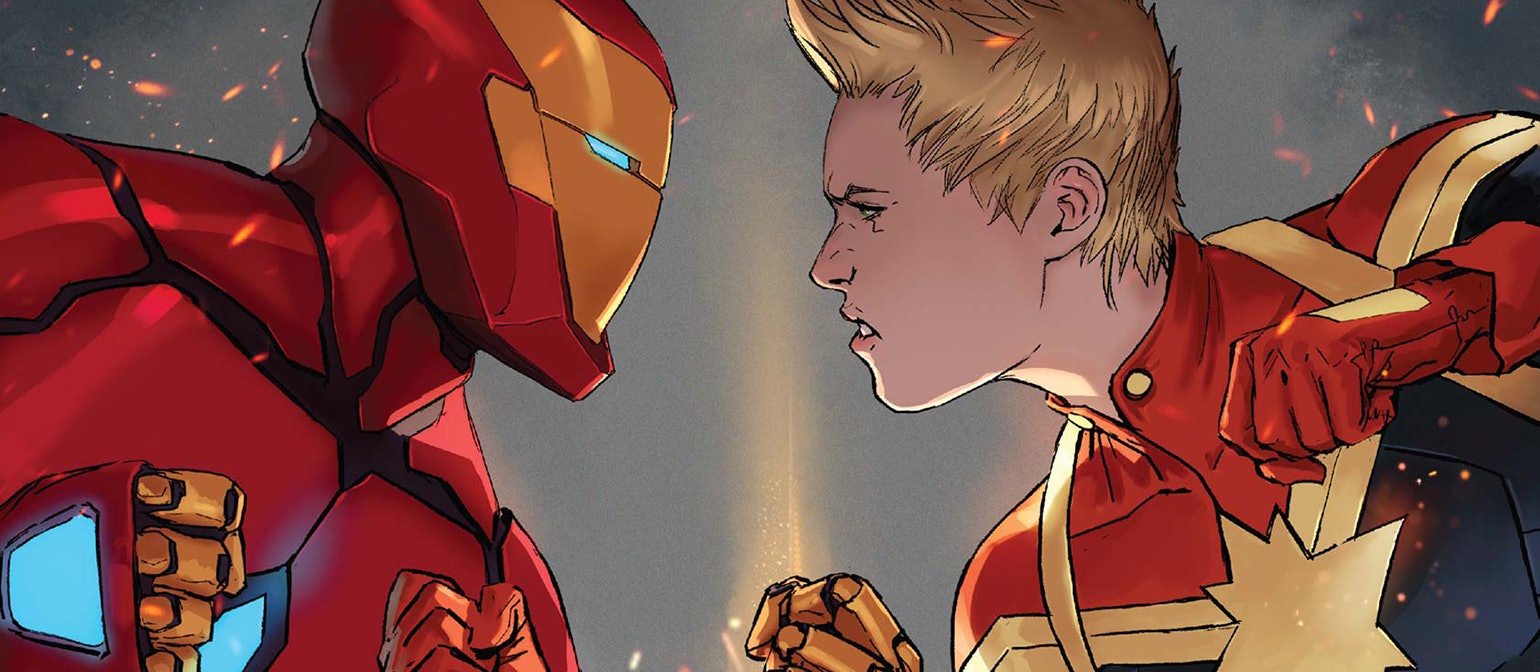
In retrospect, releasing a line-wide crossover event with the tagline “Choose Your Side” might have been reading the room a little too well back in 2016, a year where the U.S. Presidential election seemed as much like an outright culture war as has ever been the case. That the tagline was particularly close to that of Marvel’s 2006 Civil War event a decade prior wasn’t an accident. After all, this was Civil War II.
Technically speaking, Civil War II wasn’t actually a sequel to the original in any appreciable way. Both depict an ideological conflict between many Marvel superheroes that becomes more physical and less ideological as it goes on. Both stories feature Iron Man as one of the two opposing heroes in a conflict. And in both comics, Iron Man is a jerk. But that’s about it as far as continuity goes.
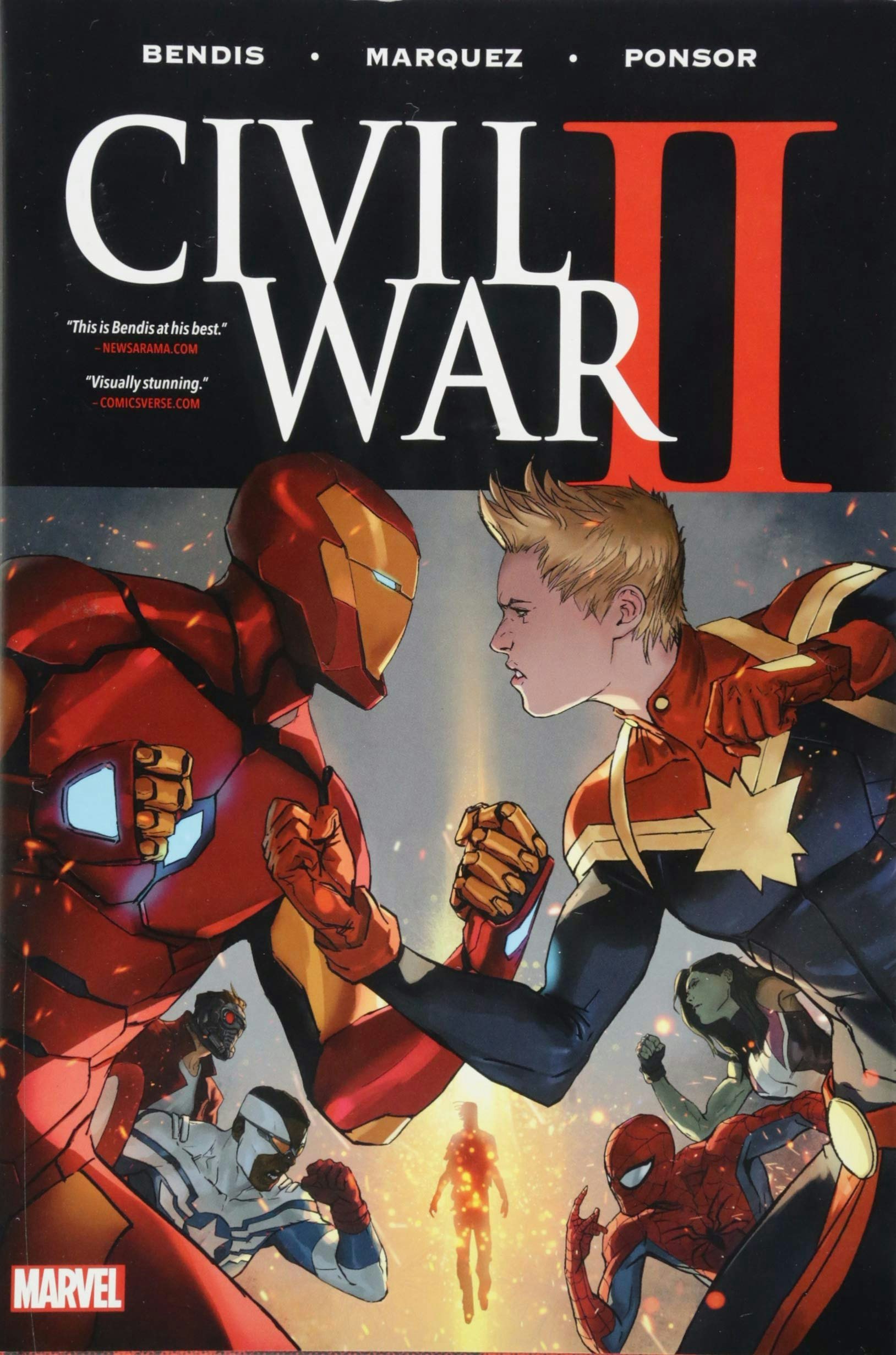
But the true inspiration behind this sequel-that-wasn’t may have been the movie adaptation Captain America: Civil War, which was released in the same year that Civil War II made it to store shelves. Then-Marvel editor-in-chief Axel Alonso even hinted at this explanation when talking to The Washington Post about the series.
“The way we look at it, we’re telling a movie that may come out in 10, 15, or 20 years,” he said. “We’re telling the best stories we can… We’ve got an unlimited special-effects budget. We have tons of latitude creatively to bend, break, and have fun and get people talking at the comic-book stores and beyond. We don’t feel that pressure [to match the movies]. We’re just having fun telling great stories.”
Such quotes are made for the Doth Complain Too Much file, surely.
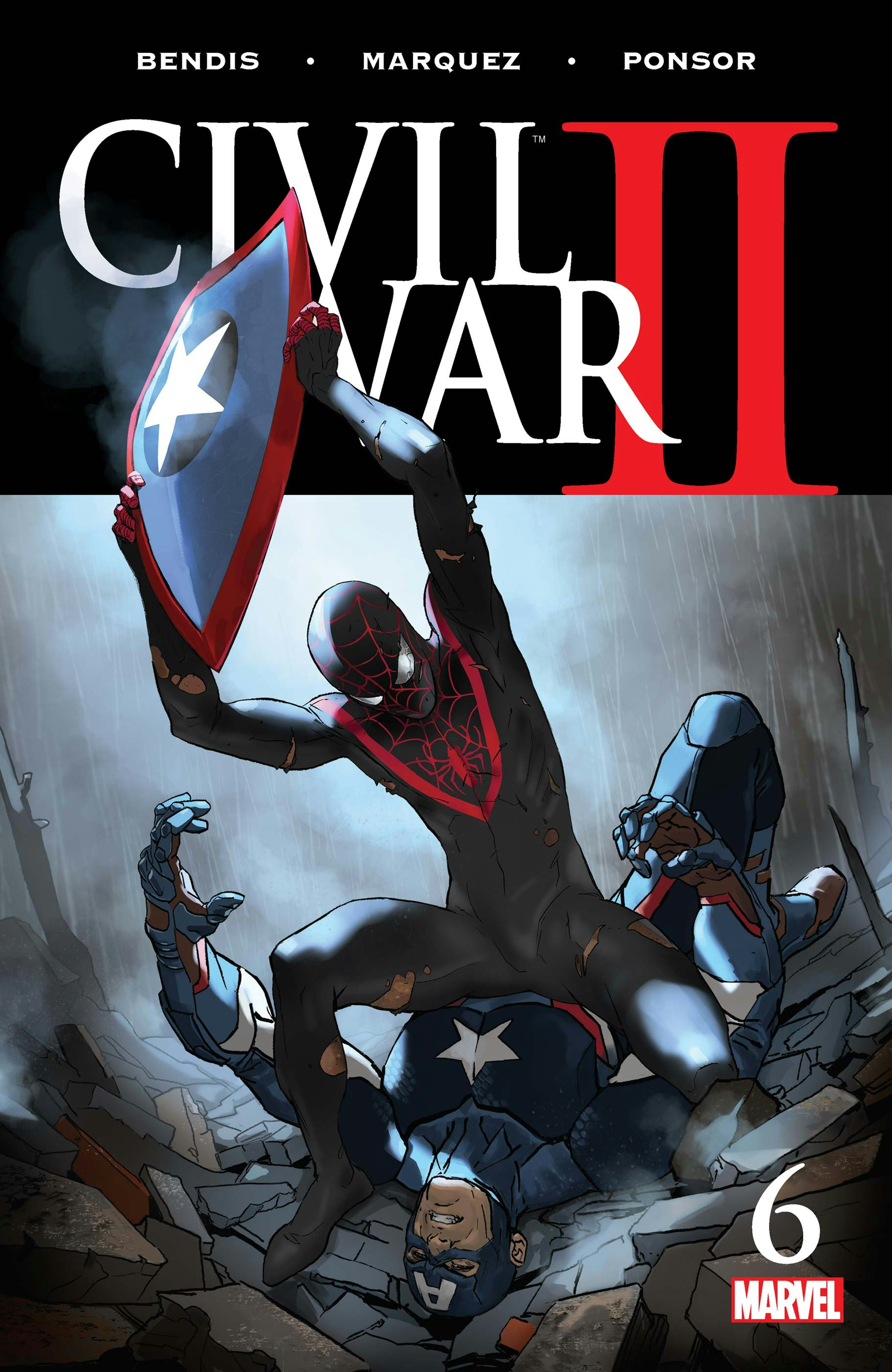
The plot is, to put it mildly, an ambitious attempt to tell a complex story tied down by wider corporate concerns. For one thing, the entire comic book crossover was seemingly designed to promote two upcoming Marvel movies. Civil War II pitted Tony Stark (the other star of Captain America: Civil War) against Carol Danvers (star of the then-upcoming Captain Marvel). The MacGuffin they were arguing about, meanwhile, was one of the Inhumans, whose doomed TV miniseries was just one year in the future.
That Inhuman was a newly created character called Ulysses, who had the power to see the future — an ability that, it turned out, was of interest to a lot of different people for entirely different reasons. As in the first Civil War, there’s a metaphor for real-world issues to be found behind all the punching and superheroic action on the page. Also as in the first Civil War, it’s an imperfect metaphor that falls apart on close inspection. In the first event, the Superhero Registration Act was a stand-in for the Patriot Act enacted after the 9/11 attacks. In Civil War II, the prospective use of Ulysses’ powers becomes in a somewhat obscure, tortured fashion, a commentary on Predictive Policing, which suggests that everything — even future crimes — can be explained away ahead of time by algorithms and computer models.
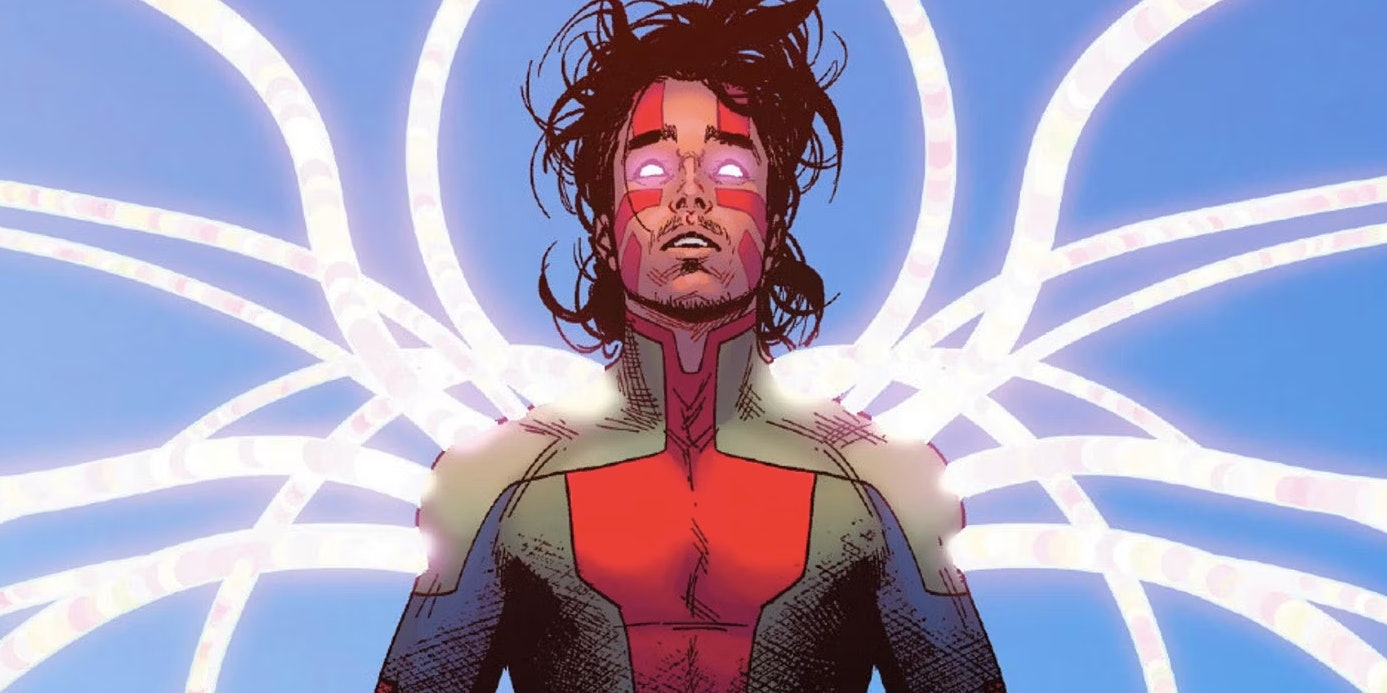
It’s Captain Marvel who wants to use Ulysses’ powers to be proactive in defending the status quo, a concept that Iron Man has no small amount of problems with. One of the things that makes Civil War II so frustrating as a reader is that the central conflict doesn’t really make a lot of sense. Tony Stark doesn’t outright dismiss what Ulysses can do, but simply wants to know how his powers work and how reliable his visions of the future are — something that, surely, Carol Danvers would want to know as well if other people are going to put themselves in danger on his say-so. For the fighting to begin, the reader has to be okay with accepting not only that Captain Marvel is such a hardliner that she refuses to leave any room for disagreement or doubt in her larger mission, but that the other heroes who join her side are similarly unwilling to listen to reason when offered the chance.
This requires even more suspension of disbelief when you take into account just what happens when people do act on Ulysses’ predictions. The big event that launches the narrative comes at the end of #1 – which, because this was a Marvel comic book series in the 2010s, is actually the third issue of the series, after #0 and a Free Comic Book Day issue – when an attack by Surprise Guest Star Thanos is thwarted because Ulysses saw it coming, but not before the villain murders James Rhodes (aka, War Machine) and severely injures She-Hulk. It’s the emotional impact of Thanos’ attack that truly fuels the fight at the heart of Civil War II, but it’s also something that should have prompted some somber reflection instead of a rush to point fingers and get into fights. Where’s the fun of that, though?
War Machine’s death is just the first in this unexpectedly bloodthirsty storyline. Bruce Banner dies midway through the story – murdered by Hawkeye in a plot development that feels arguably more nonsensical than everything else in the story but leads to the marvelous Immortal Hulk series, so can be forgiven – and, by the end of the story, Tony Stark is… maybe kind of dead as well, for reasons that literally come out of nowhere but provide a twist ending literally no-one saw coming. He’s punched so hard by Captain Marvel that he goes into a coma, but it’s a special Iron Man coma because he experimented on himself so he’s no longer fully human, so… that’s something, I guess…? Honestly, it’s just kind of something that just happens at the end, with little lead-up or exploration.
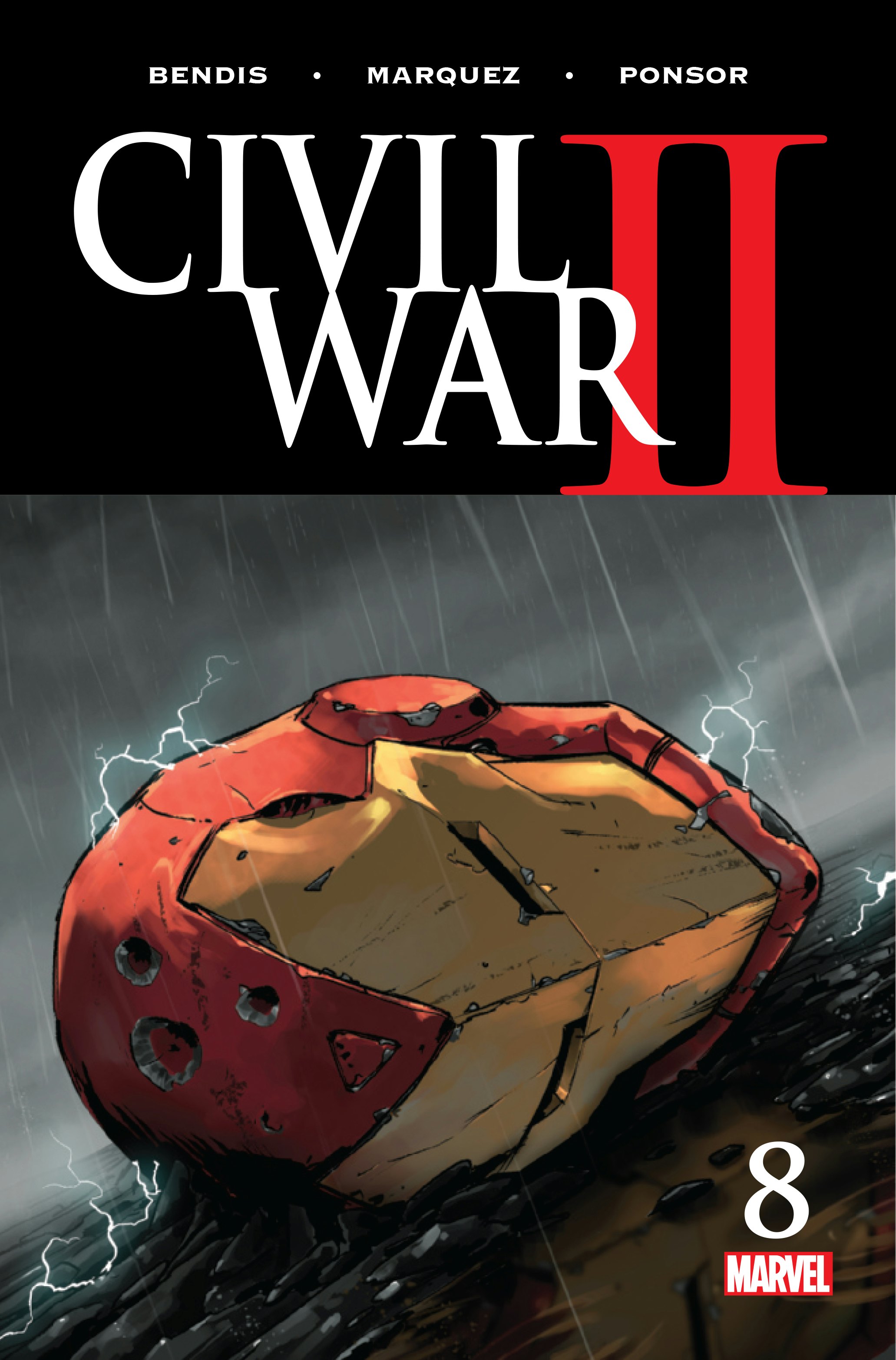
Ulysses, meanwhile, is written out of the Marvel Universe at the end of the series, with the explanation being that his powers have evolved so much that he is… a cosmic being or something. Again, it’s not actually explained, beyond having the personification of Eternity show up and say, “You are part of the greater universe now. There is much more than just the Earth. If you choose to join us,” and then Ulysses just disappears. All of that death and destruction in his wake, and he just… disappears.
It’s fair to say that the end of Civil War II is a mess, in case you can’t tell. Really, all of Civil War II is a mess, and that’s actually part of its charm. It’s a wildly entertaining, over-stuffed collection of scenes that never actually coalesce into a coherent story at any point, instead choosing to bounce between ideas and teases for entirely different comics altogether — are nods towards both the Old Man Logan series and the “Captain America is actually a Hydra agent” storyline,” for no immediately apparent narrative reason. It’s as if writer Brian Michael Bendis and artist David Marquez were fully aware that there wasn’t enough story to fill the series otherwise, and are just doing whatever they can to keep things moving and distract the reader along the way with a well-timed death or two; what’s honestly surprising is that, somehow, it works despite everything.
So far, no one at Marvel has suggested that it’s time for Civil War III. We can only hope that, by the time 2026 rolls around, it’s something that will have been accepted as a once-a-decade tradition… After all, as Ulysses would be the first to admit, everyone needs something to look forward to.







